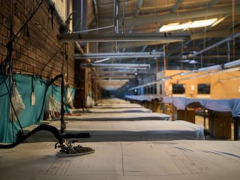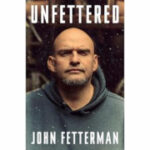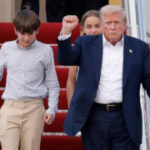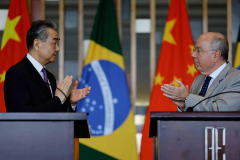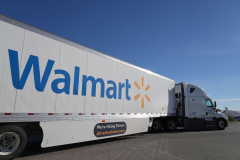MASERU, Lesotho — The deafening roar of hundreds of sewing machines has gone silent. Spools of thread in every color are covered in dust. The warehouse is dark and empty.
In the tiny African nation of Lesotho, clothing manufacturer Tzicc’s business has dried up in the face of tariffs imposed by U.S. President Donald Trump’s administration. A few months ago, work was steady. The factory’s 1,300 employees has made and exported sportswear to American stores, including JCPenney, Walmart and Costco.
But when Trump announced sweeping new tariffs on nearly all U.S. trading partners in April, Lesotho found itself topping the list, with a rate of 50% — higher even than that of China, where the economy is 8,000 times larger. Officials here and economic experts said they were baffled.
Since then, Trump backed off — temporarily. During a monthslong pause for trade talks, the U.S. has charged a baseline 10% tariff and announced new rates for dozens of countries starting Friday. Lesotho’s rate will be set at Trump’s whim, with aides suggesting that tariffs charged on goods from smaller African countries could top 10%.
Many nations have received letters laying out a new tariff. With the pause set to expire Friday, Lesotho officials say they’ve not received one and they find themselves among the countries where Trump says officials simply don’t have time for one-on-one negotiations. Leaders — and the 12,000 people employed by garment factories exporting to the U.S. market — are still waiting.
The damage has already rippled through Lesotho’s economy, where textile manufacturing comprises the largest private industry with more than 30,000 workers in 2024.
For Tzicc and its customers, the threat and apparent singling out of Lesotho were enough. Management decided to rush to deliver preexisting orders before tariffs resumed. But American buyers stopped placing new orders. With no work left, virtually all the factory’s employees were sent home — potentially permanently.
“Well, unfortunately, we finished,” factory compliance manager Rahila Omar said, pointing out the irony of the strategy as she walked among rows of silenced and covered machines. “That is why now we don’t have any work.”
Omar is one of a handful of employees left in the eerily quiet factory. A few remain in the accounting department; others empty leftover stock to a warehouse elsewhere.
Officials and workers fear this may be a sign of what’s to come for other factories in Lesotho, where poverty is widespread among the population of 2 million and most textile workers single-handedly support their families.
In March, a month before slapping Lesotho with the 50% tariff, Trump described it as a place “nobody has ever heard of,” struggling to pronounce the nation’s name in a speech criticizing U.S. foreign aid.
It’s true Lesotho is a “very minuscule economy,” as its own trade minister, Mokhethi Shelile, described it.
But its relationship with Washington dates back decades. The U.S. was the first country to open an embassy in the capital, Maseru, after Lesotho declared independence from the United Kingdom in 1966. The military received U.S. training, and hundreds of millions in U.S. funds were sent to Lesotho to fight the HIV/AIDS epidemic via the now defunctUSAID office and the PEPFAR program.
As textiles grew to become Lesotho’s main export, some 75% of its product went to the U.S. Lesotho became known as Africa’s denim capital. If an American purchased jeans from a U.S. brand such as Wrangler or Levi’s, they may have been “Mad

